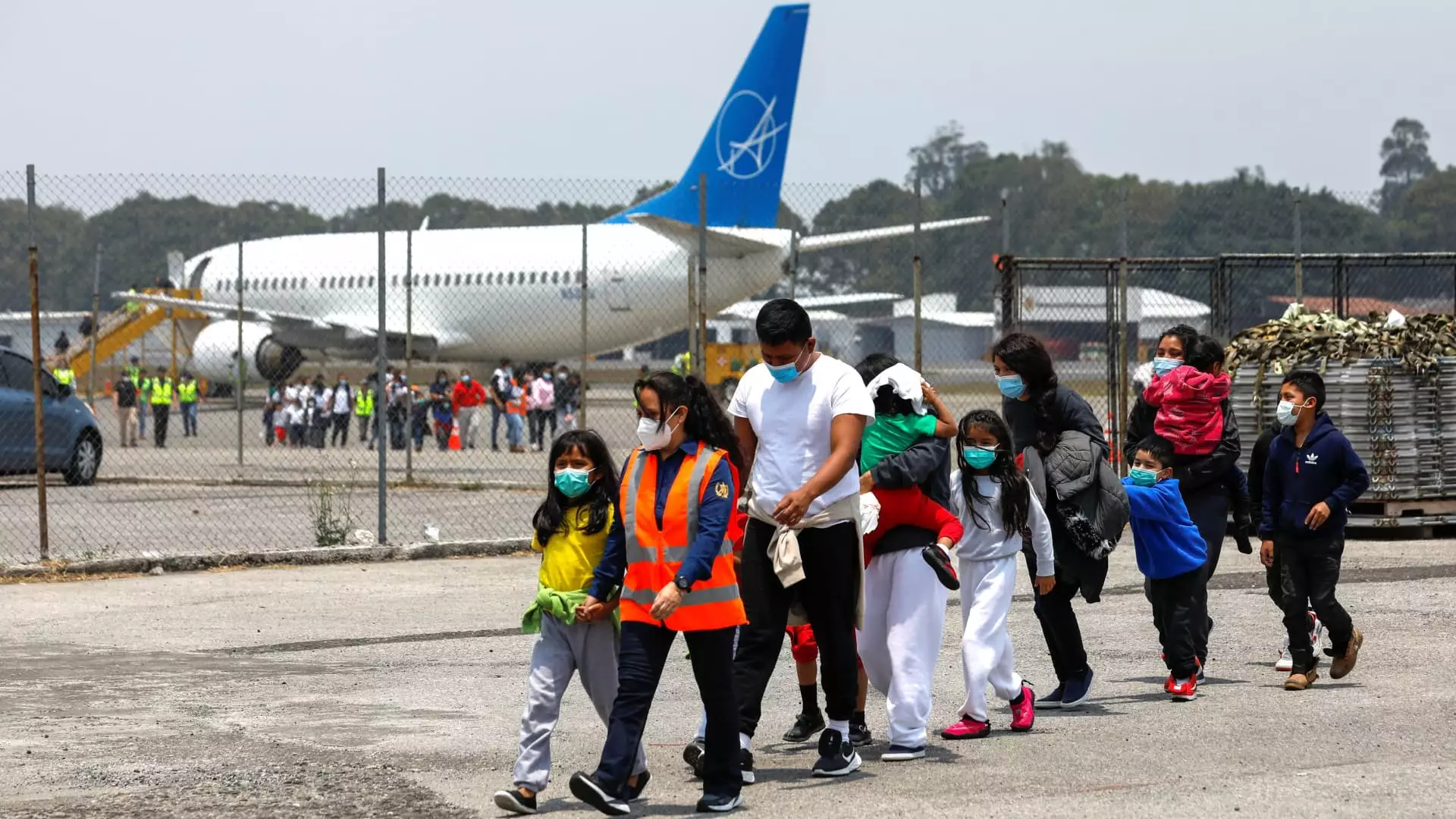Recent events have unfolded that illuminate the fraught nature of the United States immigration system, particularly when it comes to protecting vulnerable individuals seeking refuge. A federal judge, Brian Murphy, has mandated that the Trump administration take immediate steps to return “O.C.G.,” a gay Guatemalan man, to the U.S. after he was erroneously deported to Mexico despite fearing for his safety. This ruling is not just a correction of a bureaucratic error; it’s a stark reminder of the brutal realities faced by many who come to this country seeking solace from unthinkable persecution.
The facts of the case unravel a narrative often overlooked in the political discourse surrounding immigration. O.C.G. fled Guatemala in 2024, claiming sanctuary from alarming threats linked to his sexual orientation. Yet, instead of finding safety, he was thrust into further peril in Mexico, a country notorious for its violence and discrimination against LGBTQ+ individuals. The ruling exposes not only procedural lapses by U.S. Immigration and Customs Enforcement but also a chilling indifference to human rights that can result from draconian immigration policies.
The Illusion of Due Process
Murphy’s observation that “due process is, in some sense, a binary” encapsulates a fundamental truth about the constitutional protections that should be afforded to everyone under U.S. law. The judge emphasized that O.C.G. did not receive the legal protections that the Constitution guarantees to those facing deportation. This scenario raises significant questions: How many more individuals like O.C.G. have slipped through the cracks of an imperfect system? How many lives are being derailed by a lack of adequate legal safeguards?
Across the political spectrum, widespread support for strict immigration control often overwhelms the pressing need for humane treatment of migrants. Stripped of their rights in the name of political expediency, these individuals become mere statistics in a larger narrative of border security. This troubling trend only serves to empower an administration more interested in enforcing a hard-line agenda than ensuring justice and dignity for those it claims to protect.
The Role of the Judiciary
Federal judges play a critical role in upholding constitutional principles, especially during times when governmental power seems unchecked. In light of immigration policy errors, Murphy’s recent ruling contributes to a broader conversation about the judiciary’s responsibility in safeguarding human rights. With his determination that the Trump administration’s actions were “troubling,” Murphy signifies the importance of independent judicial oversight in countering government overreach.
This judicial activism is essential but should not be viewed as an ideal fix to systemic injustices. Rather, it represents a necessary response to failures in executive action. The idea that individuals can be escorted out of the U.S. under dubious pretenses and without proper legal process reveals a glaring flaw in a system mandated to prioritize justice.
Manifestations of State Indifference
Despite being appointed by Trump’s predecessor, Murphy’s ruling draws attention to the need for continued scrutiny of policies that can produce harrowing consequences for real people. The case of O.C.G. is harrowing not only because of the individual circumstances it embodies but also because it exemplifies a troubling pattern of state indifference towards marginalized populations.
The Justice Department’s acknowledgement of a critical error in O.C.G.’s case should prompt serious reflection on how such oversights can occur in the first place. Miscommunications, bureaucratic snafus, and systemic negligence can lead to devastating repercussions. The repercussions are not merely administrative but deeply personal; deportees like O.C.G. find themselves navigating a minefield of trauma, fear, and uncertainty.
A Call to Action
The courts must serve as a bulwark against the encroachment of oppressive policies that endanger human dignity. There is a pressing need for comprehensive immigration reform that prioritizes the lives and rights of individuals over bureaucratic efficiency. Political dialogue must center not merely on national security but on recognizing the humanity of those who seek refuge.
Advocates like Trina Realmuto, who represent individuals like O.C.G., are often the unsung heroes in this struggle for justice. With every legal victory, they shine a light on the injustices that continue to pervade our immigration system. A human rights framework must underpin all discussions of immigration policy, ensuring that those who dare to dream of a better life are met with compassion rather than hostility. In this fight against systemic cruelty, we are all stake-holders.

